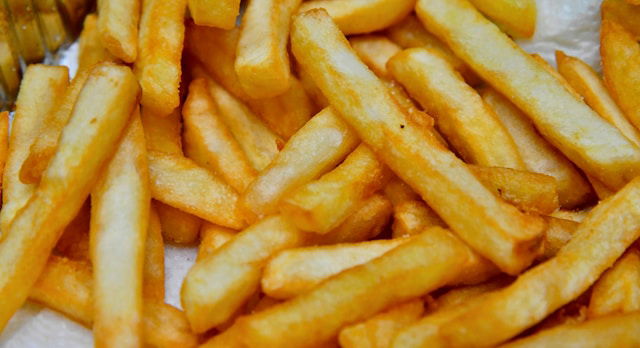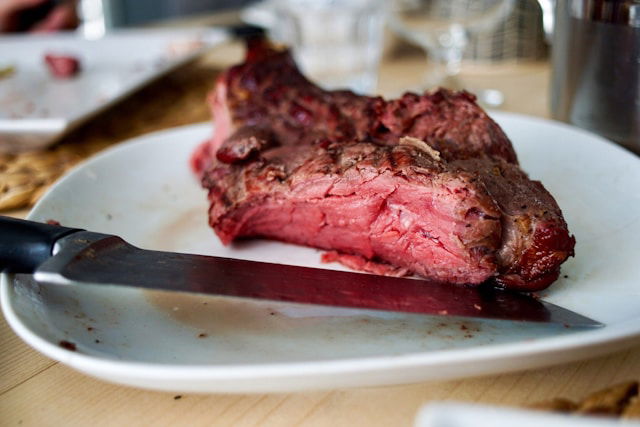Calcium is not only vital for strong bones but also plays a key role in keeping your heart beating, your muscles working, and your nerves firing. Without enough calcium, your body struggles to maintain its strength and function.
The Cleveland Clinic explains that calcium is the most abundant mineral in the human body.
More than 99 percent of it is stored in bones and teeth, giving them strength and structure. The remaining 1 percent, though small in amount, is essential because it works inside your muscles, tissues, and bloodstream to keep vital processes running smoothly.
Since the body cannot produce calcium on its own, you must get it through food, drinks, or supplements. The challenge is that while many foods are rich in calcium, others harm your calcium balance. These calcium-harmful foods slowly drain your reserves and leave your bones weaker over time. Below are six common culprits you should know about.
1. Soda and Soft Drinks

Soda tops the list of calcium-harmful foods because most soft drinks, especially colas, contain phosphoric acid. This acid interferes with calcium absorption, which causes your body to lose calcium from bone tissue. On top of that, the high sugar content in soda fuels inflammation, and inflammation weakens bone strength in the long run.
Regular soda consumption has been linked to reduced bone density and a higher risk of fractures. Choosing healthier alternatives such as herbal tea, sparkling water with lemon, or natural fruit infusions can help protect your calcium levels and bone health.
2. Salt and Sodium-Rich Foods

Another major calcium-harmful food is salt. Excess sodium increases the amount of calcium excreted through urine, gradually depleting your body’s reserves. When too much calcium is lost this way, bones become brittle and fragile.
The biggest sources of sodium are fast food meals, packaged snacks, canned soups, and processed frozen dinners. If you want to safeguard your bones, make it a habit to read nutrition labels and reduce added salt during cooking. Using herbs, spices, and lemon juice can enhance flavor without draining calcium.
3. Caffeine in Coffee, Tea, and Energy Drinks

Caffeine is one of the most widely consumed stimulants, but it also appears on the list of calcium-harmful foods. Too much caffeine encourages calcium loss through urine, especially when consumed daily in large amounts. Over time, this loss increases the risk of weaker bones and fractures.
Experts suggest that one or two cups of coffee a day are generally safe, but drinking more than that can impact calcium stores. If you enjoy coffee or tea, balance it by adding calcium-rich foods to your diet, such as yogurt or fortified plant-based milk. This way, you get your energy boost without harming your bones.
4. Alcohol and Bone Health

Alcohol is another harmful food when consumed in excess. Heavy drinking prevents the body from absorbing calcium efficiently and disrupts the activity of osteoblasts, the bone-building cells. Without active osteoblasts, bone growth slows down, making bones weaker.
Alcohol also reduces vitamin D levels, which are necessary for proper calcium absorption. Health guidelines state that more than one drink daily for women and more than two drinks daily for men can increase the risk of osteoporosis. Moderation is the key. If you drink, do so responsibly and pair it with a diet rich in calcium and vitamin D to maintain healthy bones.
5. Red Meat and Processed Meats

Red meat and processed meats such as bacon, sausages, and hot dogs also qualify as harmful foods. These products are high in phosphorus, which can disrupt the balance of calcium in the body. If calcium intake is low, this imbalance negatively affects bone strength.
Eating red meat occasionally is not dangerous, but frequent consumption raises risks over time. Replacing some servings with healthier protein sources such as chicken, fish, beans, or lentils provides variety and supports stronger bones. Balanced nutrition ensures that your body gets the calcium it needs without unnecessary strain.
6. Spinach and Rhubarb with Oxalates

Spinach and rhubarb are healthy vegetables, but they fall under harmful foods because they contain oxalates. Oxalates bind to calcium in the digestive tract, preventing full absorption. As a result, the body cannot use all the calcium present in these foods.
This does not mean you must avoid spinach or rhubarb entirely. Instead, combine them with low-oxalate, calcium-rich vegetables like kale and broccoli. This approach helps your body absorb calcium effectively while still benefiting from the nutrients in leafy greens.
Whether through poor absorption, increased excretion, or nutrient imbalance, the result is the same: weaker bones and a higher risk of osteoporosis.
The human body depends on calcium for much more than bone health. It helps regulate heartbeat, nerve signaling, and muscle contraction. When calcium levels are low, the body draws it from bones to support essential processes, which leaves bones weaker. Protecting your balance is therefore essential for both strength and overall health.
